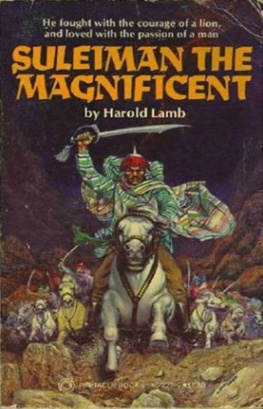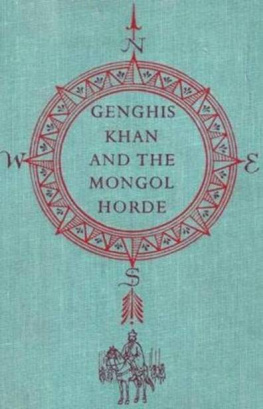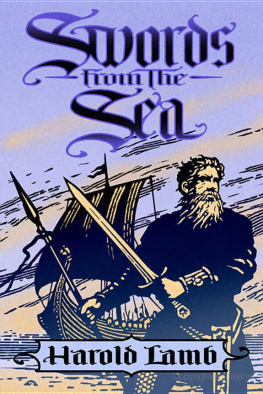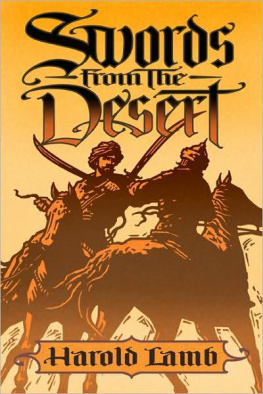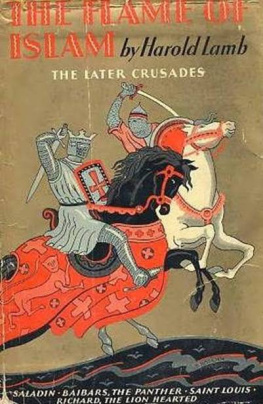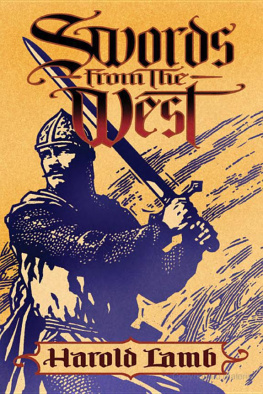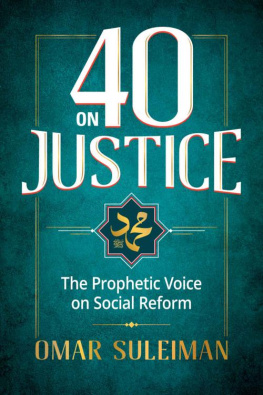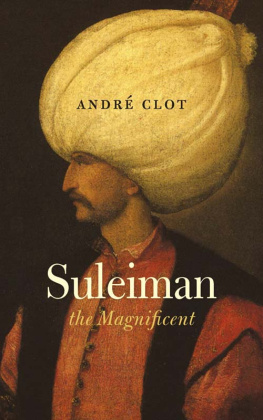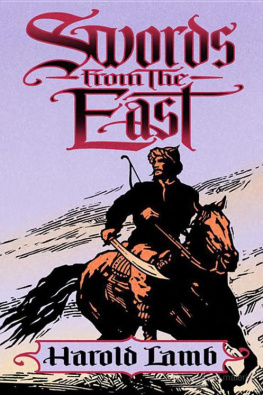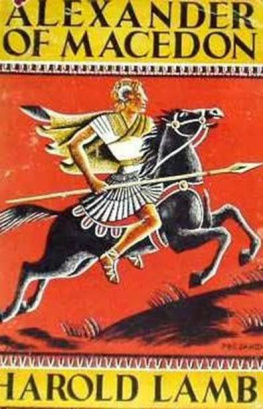Harold Lamb - Suleiman the Magnificent: Sultan of the East
Here you can read online Harold Lamb - Suleiman the Magnificent: Sultan of the East full text of the book (entire story) in english for free. Download pdf and epub, get meaning, cover and reviews about this ebook. year: 1978, publisher: Pinnacle Books, genre: Detective and thriller. Description of the work, (preface) as well as reviews are available. Best literature library LitArk.com created for fans of good reading and offers a wide selection of genres:
Romance novel
Science fiction
Adventure
Detective
Science
History
Home and family
Prose
Art
Politics
Computer
Non-fiction
Religion
Business
Children
Humor
Choose a favorite category and find really read worthwhile books. Enjoy immersion in the world of imagination, feel the emotions of the characters or learn something new for yourself, make an fascinating discovery.
- Book:Suleiman the Magnificent: Sultan of the East
- Author:
- Publisher:Pinnacle Books
- Genre:
- Year:1978
- Rating:3 / 5
- Favourites:Add to favourites
- Your mark:
- 60
- 1
- 2
- 3
- 4
- 5
Suleiman the Magnificent: Sultan of the East: summary, description and annotation
We offer to read an annotation, description, summary or preface (depends on what the author of the book "Suleiman the Magnificent: Sultan of the East" wrote himself). If you haven't found the necessary information about the book — write in the comments, we will try to find it.
Suleiman the Magnificent: Sultan of the East — read online for free the complete book (whole text) full work
Below is the text of the book, divided by pages. System saving the place of the last page read, allows you to conveniently read the book "Suleiman the Magnificent: Sultan of the East" online for free, without having to search again every time where you left off. Put a bookmark, and you can go to the page where you finished reading at any time.
Font size:
Interval:
Bookmark:
And, defeated in the field, Zapolya had appealed to Sulei man. The appeal pleased the Sultan, but not the manner of it. Ibrahim castigated his envoy sharply. You come too late. You should have come before the crowning of your King. How dared your lord think of himself as lord of Buda? Do you not know that my master was there? Where the horse of the Sultan has trod, that ground is forever his .... Brother, you come here as if from a servant. If you have come with tribute, give it; otherwise there is no use talking.
But when envoys appeared from the Hapsburgs, their recep tion was very different. The versatile Ibrahim played another part that of a courteous host, interested in all his guests had to say. ( He was curious to learn the intentions and the power of the Hapsburgs.)
The two Germans, Hobordanacz and Weixelberger, had the full benefit of ceremony, with the janizaris paraded at their entrance, and all the pashas sitting robed in the Divan. On their part the Germans had a train of four hundred knights, in full panoply. There was an imperial air to the meeting, and Ibrahim enjoyed himself vastly, asking if the envoys of the King of Bohemia and Germany he did not say Hungary had had a
pleasant journey, and if they were comfortable in their quar ters, and what had they to tell of their lord?
Hobordanacz said he was happy in the destiny that made him, the King of Hungary, such a near neighbor of the great Turkish emperor.
Ibrahim: Did you not know that the Sultan has been to Buda?
Hobordanacz (roughly): He left signs enough behind him, for us to know he visited it.
Ibrahim: But the castle; how was that left?
Hobordanacz: Whole and undamaged.
Ibrahim: Do you know why?
Because it was the royal castle, apart from the town.
No, because the Sultan desired to preserve the castle for his own use. God willing, he will keep it.
Hobordanacz: We know that is the Sultans idea. Yet even Alexander the Great was unable to carry out such ideas/ Ibrahim could not pass this answer over (knowing that Sulei man was listening, who had debated with him so often the ideas of Alexander). He challenged the envoy sharply. Then you say that Buda does not belong to Suleiman?
I cannot say,otherwise than that my King holds Buda. Ibrahim seized the chance to cross-question him about Fer dinands real nature and power. Why do you call him wise ... what do you understand by wisdom ... what boldness and courage do you find in him ... what have you to say about the power of your master?
Hobordanacz did not fare very well in trying to draw Ferdi nands portrait as an ideal monarch. By pretending naive curi osity and appearing skeptical, Ibrahim managed to get some useful information from the envoy. Only at the end did the Vizir drop his mask of guilelessness. The envoy had explained that Ferdinand was supported by the friendship of his strong neighbors.
Ibrahim: We know that these so-called friendly neighbors are in reality his enemies. And, as if absently, he asked, Do you come as at war or in peace?
Ferdinand desires the friendship of all his neighbors, the enmity of none.
Having sounded out the envoys, Ibrahim had them conducted into the presence of Suleiman with all splendor. Gifts were offered by the knights attendant on the envoys, and taken by janizaris of the guard, who displayed them to the onlookers. Meanwhile the envoys were kept at the door with their inter preter, until Suleiman asked them to state their masters busi ness. Then each was led forward in turn between Ibrahim and Kasim, who held their arms, in ancient tribal fashion. Hobordanacz said he had come to request a truce, if not a peace. Giving no answer, Suleiman spoke aside to his Vizir, who demanded, How do you dare speak of the power of your master here in the presence of the Sultan, to whose protection other princes of Europe have been willing to commend them selves?
Unguardedly Hobordanacz asked who those princes might be.
The King of France, he was told, the King of Poland, the Voevode of Transylvania, the Pope, and the Doge of Venice. That silenced the blunt Austrian, who realized the essential truth of it. Ibrahim added ironically that all but one of these princes were supreme heads of Europe. After a moments thought Hobordanacz changed his tone, but it did him no good. His mission was an impossible one. During later conferences with Ibrahim he had to admit that Ferdinand expected his sovereignty to be acknowledged over all fortified places in Hun gary, in return for an agreed peace.
I am surprised, Ibrahim commented, that he does not ask for Constantinople as well.
The Germans made matters worse by suggesting that com pensation would be paid Suleiman. Ibrahim, really angry, went to a window and pointed out the ancient city wall. Do you see that wall? At the end of it there are the Seven Towers, all of them filled with gold and treasure. As for offers, he added, both Charles and Ferdinand seemed incapable of keep ing faith.
Not until their dismissal did they go before Suleiman again. And their dismissal was most ominous.
Your master has not yet felt our neighborly friendliness, Suleiman informed them, but he shall soon feel it. Tell him plainly that I am coming in person with all my power to give back to Hungary the fortified places that he demanded of me. Tell him to make ready to receive me well.
Nor were the unfortunate Germans allowed to depart with their message. For a year they were kept confined, to meditate upon their message, while the Turks prepared for war. Suleiman had decided to remove Hungary entire from the nascent middle Europe dominion of the Hapsburgs. The coun try of the inviting prairies and lakes would become Magyaristan, the land of the Magyars, selfruled tinder Suleimans pro tection and authority. He had waited long to make this decision. A suitable ruler for the Hungarian state was at hand in John Zapolya, who held the allegiance of the common folk.
Zapolya was acknowledged King of Hungary, freed from
paying any tribute in return for his armed supportand given Gritti as a permanent envoy in Constantinople. Tell your mas ter, Suleiman informed him, that now he can sleep with both ears shut.
The great moving encampment of the Turks threaded the familiar roads, past the Roman ruins of Adrianople, up into the mountain gorges, bridging its way, sometimes crossing floods on walks laid over tree branches, swinging through the bare Serbian valleys, sighting again its old frontier at the broad gray sweep of the Danube. As before, the Army of Asia, the horse men of Anatolia, Syria and the Caucasus, caught up with it and fell in behind.
This time, however, there was a change. A division of Croats came in from the western ranges, and was given a place in the camp beside the contingents of Bulgars and Serbs. On the familiar grassy plain of Mohacs, Zapolya appeared with 6000 Hungarians, and Ibrahim rode out to escort him in, to be greeted as King and as ally of Suleiman. Another lord, Peter Pereny, brought in the iron crown of Hungary. Beside these Hungarians Luigi Gritti pitched his tent. Few as they were these men represented the nucleus of the nations that acknowl edged Suleimans rule from the Black Sea to Venice. Later Pau Verday appeared from Gran, with the keys of that strong city, yielded by its archbishop.
Font size:
Interval:
Bookmark:
Similar books «Suleiman the Magnificent: Sultan of the East»
Look at similar books to Suleiman the Magnificent: Sultan of the East. We have selected literature similar in name and meaning in the hope of providing readers with more options to find new, interesting, not yet read works.
Discussion, reviews of the book Suleiman the Magnificent: Sultan of the East and just readers' own opinions. Leave your comments, write what you think about the work, its meaning or the main characters. Specify what exactly you liked and what you didn't like, and why you think so.

